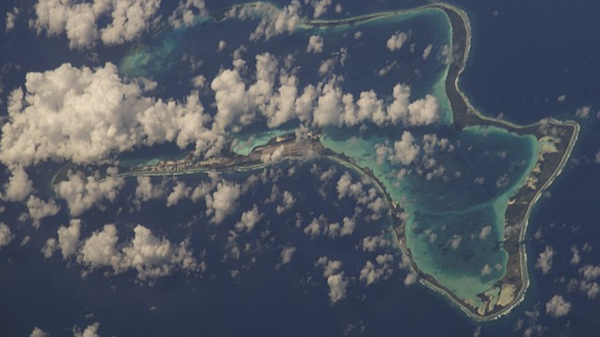Staff writer Alexandre Doré charts the recent struggles of Chile in drafting a new constitution. He examines the background of the reforms and asks what has caused public discontent with the document.
Drafting a constitution isn’t an activity that states regularly practice. Constitutions are texts that create and regulate relations between institutions within a state, often used to insure inalienable rights. This makes them a country’s most important legal document. In most cases, a change to the state’s structure happens after a huge demand for change in the political system, often after revolutions. Constitutional amendments often respond to a failure caused by the existing structure of the state. An example of this would be the switch from the fourth to the fifth republic in France, which happened in the middle of their colonial conflict with Algeria.
Chile established its current constitution during the dictatorship of Augusto Pinochet, making the text a heritage of the country’s violent past. However, since the 1990s and the country’s democratic transition, Chile has seen strong public demand for a new constitution. In a referendum organized in 2020, 79% of the population voted in favour of a change in this area. And following social unrest in 2019, president Pinera started the process of drafting a new constitution.
The outcome of the 2021 presidential elections influenced this process greatly. The topic of constitutional reform was key to the result, as the subject was discussed at length in the political campaigns of both candidates. This led to the election of Gabriel Boric, the youngest president in the history of Chile. At 37 years old, he represented for many the only hope against far-right candidate José Antonio Kast, an admirer of Pinochet. Boric was elected by appealing to young voters and by promising a raft of new social measures, including the aforementioned constitutional overhaul. He symbolizes a new, younger political era for the country and the continuation of the ‘pink tide’ in Latin American politics. Which designates the successive victories of parties of the left in elections.
Failures in the Drafting of the Text
Many have criticised the process of creating the constitution. The opposition argued that the commission which was chosen to represent the Chilean population, was not professional enough. The result was, according to many, not a respectable document made by legal experts but more of an ambitious concentration of unrelated ideas. For example, the project included rights to free higher education, social security, abortion access and housing. Most Chileans agree with these measures individually. However, the opposition took advantage of the ambition of the reforms to stir controversy and confusion. Indeed, right-wing parties organised a massive social media campaign targeting certain articles. They mainly accused the text of being communist and not respecting Christian values, due to its stances on abortion and wealth distribution.
This campaign was so important that members of the US Congress called attention to the problem. Stories such as the constitution allowing abortion during all 9 months of pregnancy, or private property being banned went viral online. All of these are false, but created confusion among the Chilean population. But blaming the failure of the project on the opposition alone would be wrong. The project included many measures which were incomprehensible or unappealing to many Chileans.
The main point of contention in the constitution was the declaration of the state of Chile as ‘plurinational’, which is a term used to recognize the diversity of people within a state. This measure is based on the country population’s being composed of 11% indigenous people. This includes 9% Mapuche, an ethnic group present mainly in south-central Chile. Through this legal process, the convention clearly wished to give this minority more representation and recognition on a state level. This concept is not new as it has been considered in countries such as Canada and New Zealand and is even the official status of Bolivia and Ecuador since 2008 and 2009.
In the case of Chile, the idea is quite controversial since it was perceived as a symbol of the constitutional convention being out of touch with the people they are supposed to represent. Indeed, only 12% of the Mapuche are in favour of a plurinational state and 48% of them simply wished for a state that didn’t differentiate based on ethnicity or region of origin. Additionally, many Chileans believe declaring the state as plurinational would only result in greater division inside the country, particularly since many struggle with the meaning of the word or are (often deliberately) misinformed.
Outcome
In September 2022, the Chilean government held a referendum on the new constitution. If the project won the approval of the population, it would replace the 1980 Pinochet constitution. However, Boric and his followers didn’t succeed in convincing the public of the advantages of his new constitution. Indeed, 62% of the population voted to reject it. Even 75% of the poorest quintile of the population voted against it, making it more popular among the rich than the poor. This was quite an ironic result when the convention often claimed to represent the minorities and poorest of Chile’s population.
In general, the authors of the text were out of touch with the population they aimed to represent. The institution was too ambitious. Its social reforms were not aligned with a country composed mainly of centrist voters. The final text was also accused of being overly complicated, as it included notions that were misunderstood by a large part of the population. In general, the process of drafting a new constitution has been one of the biggest defeats in the history of the Chilean left. The president commented on the failure of the process saying it was “one of the most difficult moments I have had to face politically”.
A few days after the vote, president Boric tried a new tactic to create change. First, he surrounded himself with older and more capable ministers. In December 2022, 14 political parties, including Boric’s Social Convergence party, agreed to start the drafting of a new constitution. This time the process is coordinated by 24 experts and is composed of fewer representatives of the public. A new referendum will probably take place this year and will hope to put an end to the current, outdated constitutional system.
In general, the country seems on its way to obtaining a new constitution. Most major parties, including the opposition, are in favour of a new process. The constitutional convention was simply too ambitious, and maybe not qualified enough, to offer the change that the country needs. Gabriel Boric has done well to heed this criticism.














